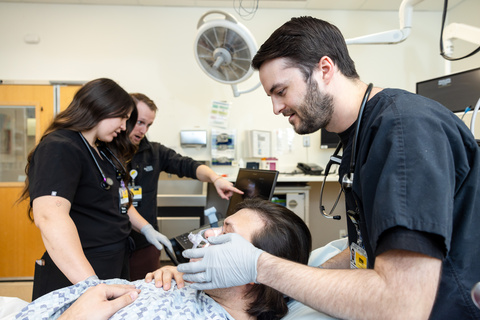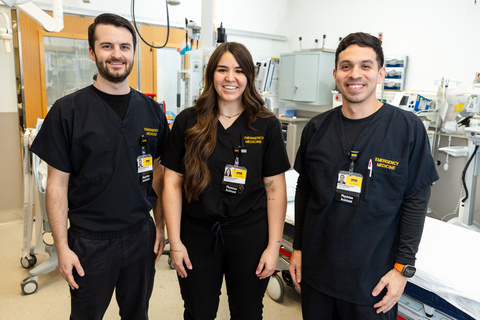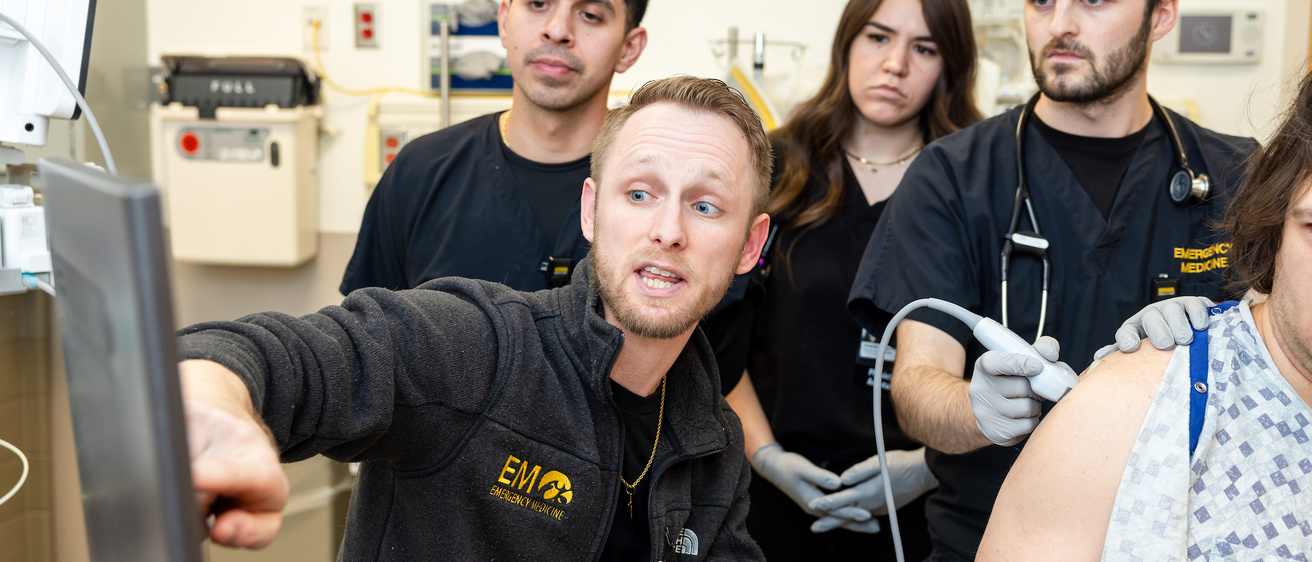Rural emergency departments are often staffed by physician assistants who may or may not have experienced specialty training in emergency medicine. Having this type of training experience is crucial not only for a patient but also for the confidence of the providers providing life-saving care.
While the University of Iowa has a program to provide this additional training, it’s not the norm in many places. It’s a gap that Andrew Nugent, MD, MHA, FACEP, professor of emergency medicine, noticed when he was about to start his residency.
"After I graduated from medical school at Iowa, I noticed that I was going off to do a 3-year residency in emergency medicine, and a lot of my PA friends were taking jobs directly out of school in rural emergency departments without any sort of additional training. This seemed horribly unfair to both the PAs and the patients," says Nugent.
To address the specialty training gap for PAs working in rural emergency departments, Nugent helped create the UI Emergency Medicine Physician Assistant (PA) Residency Program more than two decades ago.

"Providing this additional expertise works in tandem with the traditional PA curriculum. We want our graduates to be fully prepared to stabilize emergency patients if they find themselves in austere environments,” Nugent says. “Our goal isn’t necessarily to create independent providers, but to prepare them for that possibility. Regardless of where our graduates end up, their patients can feel confident in their ability to offer quality care in a multitude of environments.”
The program offers an 18-month postgraduate PA residency that is linked to the only emergency medicine physician residency program in the state of Iowa.
Josh Mann, PA-C, completed the program in 2017. Since then, he’s worked in various rural and critical access hospitals, typically operating with a smaller staffing model.
"The skills and procedural training during my EM residency time have proven invaluable in the small critical access facilities I work in where I am the only provider available, and the patient needs life-saving treatment,” Mann says.
Mann says emergency care procedures like intubation, central lines, and chest tubes can be tough in a large emergency department, but in a small, three-bed department in rural Iowa, they can easily become overwhelming if you’ve never been exposed to these procedures. He also takes the skills he’s developed and assists in preparing future providers to render care in some of the most remote and austere conditions during a wilderness medicine course through the university.

Nugent takes a lot of pride in the confidence the program has instilled in graduates like Mann, saying many continue to provide this type of critical training to the next generation.
“We have three current emergency medicine faculty who graduated from the program and do an immense amount of work to help educate our future caregivers,” Nugent adds. "All in all, I couldn’t be happier with how the program has developed over the past 20 years.”
